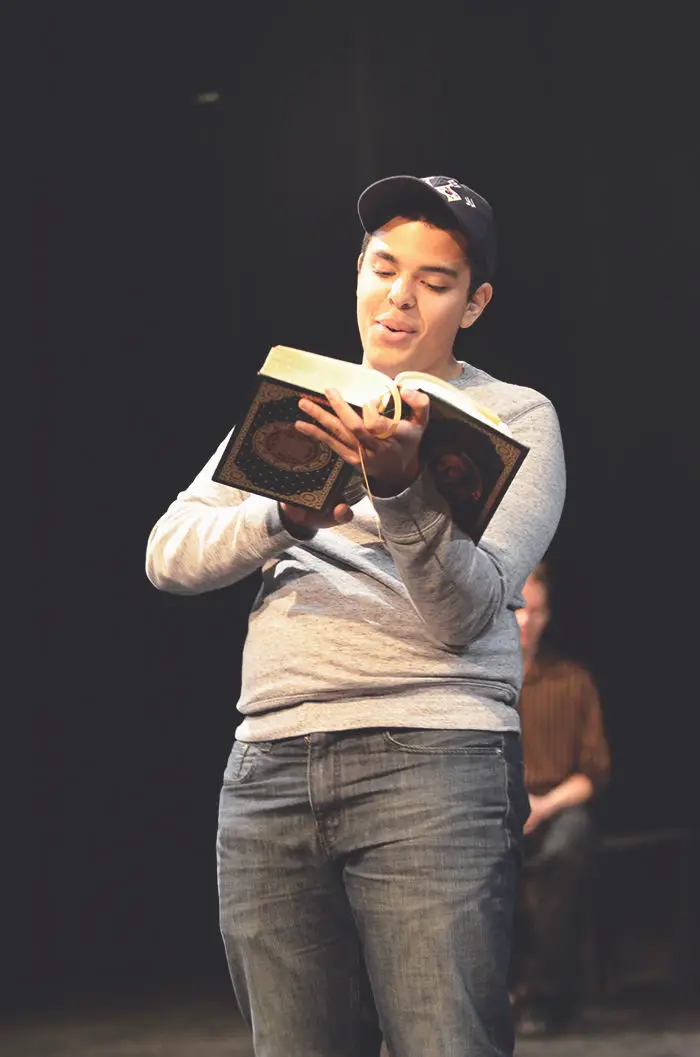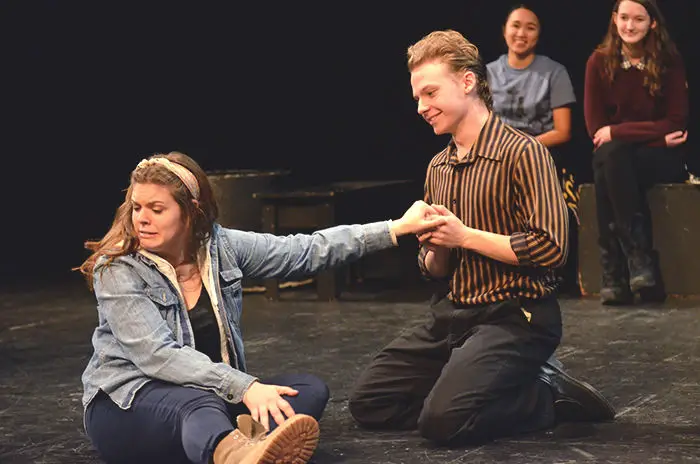If there’s one thing that can be universally appreciated, it’s comedy. Everyone loves to laugh, but some people love to make others laugh. Spencer Knudson, a Medical Sciences major at Washington State University (WSU), is a co-director for the performing arts group, Nuthouse Improv Comedy, which performs live skits and games in front of audiences numerous times a year.
I talked with Knudson about the comedy group, his aspirations as a comedian and how being a Medical Sciences major fits into any of that.

“Nuthouse is an improv comedy group that teaches performers the basics of improv, and all of the do’s and don’ts that come along with it.”
“I joined Nuthouse as a sophomore. Our group has two different kinds of rehearsals. We have open rehearsals, where anyone can perform, and we have closed rehearsals, which are cast only. When I was a freshman, I was part of a sister theatre group called Stage Student Theatre. I did a couple of open rehearsals here and there, but things didn’t really change until sophomore year. The directors choose who gets to be a regular, and, in August, I was cast and put in a show, and the rest is history.”
“When I’m the director for a show, I make a game list [involving] short-form improv games featuring different stipulations. A show typically starts with a warm-up game, like freeze tag, continues for about 16-20 games and typically ends with a game called Jection, where we ask audience members who did the best at each category. Most of the games last about 3 minutes, but some of them can go on longer.”
“I have a goal, down the line, to be on “SNL.” A bunch of the actors on the show, and most comedians nowadays, rely on improv. I became a director, so I would have the best experience and understanding of improv and how it works. I was nervous about the job at first, but it quickly became easy, and I think I’ll continue directing next year.”
“To me, improv’s not hard. [When performing,] I feel the most important thing to remember is to follow three baseline rules. For some, they may be hard to remember, but they’re incredibly important to follow.”
“The first rule is to always say ‘Yes, and…’ If someone tells you something, and you say ‘no,’ the entire scene and the punchline your partner was trying to make will completely fall apart. So, if your partner says, ‘I like your dog,’ don’t say, ‘No, I have a cat.’ Say, ‘Yes, and I bought him a new collar.’ By accepting your partner’s offer, you get to build on top of that offer. Saying ‘no’ just makes things awkward.”
“The second rule is to never ask questions. Really, improv is a team sport, and everyone needs to work together. When someone offers a suggestion during a bit, respond to that offer. When you end up confused by the offer, you let the whole scene and the whole team down.”
“The final rule isn’t necessarily a rule, but it’s something important to follow. With improv, you establish a game. The game is the running joke of a scene. The way to play the game is to base the reality of the scene, almost like a house. Set the base for the house, then add the framework before going into the humor aspect.
The way to find that humor is to find the weird thing in a scene. You do this by creating the weird thing and making sure it fits into the world, or the base and framework, that you’ve created. When you find that weird thing and put it into the scene, then add another weird thing that fits into the context of the situation, and so on. Soon, you’ll have a great improvised scene.”
“One of the hardest things as a director is making sure your other cast members understand the rules and their importance. In my experience, there are two different types of people in improv. There are people who do improv to have a better understanding of the craft and comedy in general, and there are people who do improv to get a laugh out of people. There’s nothing wrong with the latter, but the people who really want to learn and improve abide by the rules, and frankly, this produces a better and more engaging show.”
“One I’ll always remember was a character we called ‘The Vegetable Man.’ I don’t remember how the character came about or the context of the scene, but it was one of those cases where something was so dumb and ridiculous, but we somehow made it work and made the scene pretty hilarious. Seems dumb, but it really sticks out to me and was a great memory of me having fun with my friends.”
“My favorite part about Nuthouse is getting people to laugh. Everyone has crazy and bad things going on in their lives, so if I’m able to make someone laugh and make them feel better and ignore their problems, I feel like I’ve done my job. [Watching improv comedy] relaxes you and tells you that everything is okay, and that’s always nice.”

















